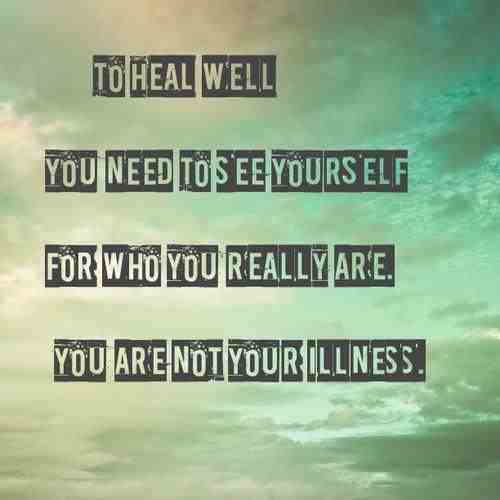 There are two problems with admitting you have IBS and that it’s causing problems in your life. The first is that it’s an illness that’s very easy to dismiss as a bit of a ‘gippy tummy’ or such. The second is that it’s a rather foul subject to discuss and not a pleasant one to be associated with. For that reason – I don’t want to be forever known as ‘the academic who told the internet about her IBS’ – I’m publishing this anonymously. Some people will recognise me from certain situations but that’s fine. We’re all grown-ups and I can’t imagine anyone I’ve talked to at length over the course of the last few years setting out to humiliate me.
There are two problems with admitting you have IBS and that it’s causing problems in your life. The first is that it’s an illness that’s very easy to dismiss as a bit of a ‘gippy tummy’ or such. The second is that it’s a rather foul subject to discuss and not a pleasant one to be associated with. For that reason – I don’t want to be forever known as ‘the academic who told the internet about her IBS’ – I’m publishing this anonymously. Some people will recognise me from certain situations but that’s fine. We’re all grown-ups and I can’t imagine anyone I’ve talked to at length over the course of the last few years setting out to humiliate me.
I started my PhD in 2010, family-funded and as a commuting student (half an hour train journey plus a lengthy walk). Right at the beginning, then, I experienced problems of validity and distance from my fellow postgrads but, in truth, the distance provided an excellent excuse for having as little to do with other students as possible. I was struggling with embarrassing diarrhea that kicked in every time I paid a visit to university. I’d always had a bit of a ‘gippy tummy’ due to stressful and unknown situations but this was persistent and it was painful. The timing of this intensification was undeniable and, yet, I consistently refused to blame my PhD. Everything else was to blame and, though there were other triggers, the correlation with my PhD is difficult to refute. It was making every trip to university a nightmare – I had to build another hour into my travel plans to allow for toilet visits and I put off eating, not that it helped remotely.
 Reluctantly, I sought help after about a year of intensifying symptoms. The first doctor I saw was dismissive. He diagnosed me with stress-related IBS and sent me on my way. Just one instance of how dismissive even the medical profession can be. And, yes, I’d agree that IBS is a relatively minor medical problem – until you have it and it becomes the centre of your universe. After a few weeks of pain, I returned to the surgery and this time saw a very helpful senior nurse. Immediately, she put me on some medication to ease the symptoms, displaying a much more practical and helpful attitude than her colleague.
Reluctantly, I sought help after about a year of intensifying symptoms. The first doctor I saw was dismissive. He diagnosed me with stress-related IBS and sent me on my way. Just one instance of how dismissive even the medical profession can be. And, yes, I’d agree that IBS is a relatively minor medical problem – until you have it and it becomes the centre of your universe. After a few weeks of pain, I returned to the surgery and this time saw a very helpful senior nurse. Immediately, she put me on some medication to ease the symptoms, displaying a much more practical and helpful attitude than her colleague.
In the meantime, my PhD stress was growing exponentially. I rejected opportunities to get further involved with the university, turning down a mentoring opportunity because I was petrified of walking into a crowded room of people and not knowing what I should do. This fear of the unknown is, of course, completely incompatible with academic life. At the time, I was struggling to get my work into shape for my upgrade from MPhil and it was nothing short of tortuous. One particular session stands out: intense questioning from my supervisor on my intentions led to a complete breakdown in the office, with me popping anti-spasm medication and desperately trying to talk my way out of the meeting. It was a low point and, thankfully, one that hasn’t been repeated. I’ve never mentioned my illness to my supervisor – how do you start that conversation? – but I’m fairly certain she knows there’s something amiss and she’s probably reading this and nodding.
 There is, naturally, more to academic life than writing a thesis, but – for the most part – dealing with the bouts of pain every time I go to university has been more than enough. I’ve ventured out of my comfort zone a few times: I’ve given a paper at a conference, with decent results, and I attended another one, with less positive results. That morning from hell possibly stemmed from my belief that since I’d been around this group of people before and knew where I was going, I was perfectly fine. I can say this – wandering around Bloomsbury in floods of tears isn’t an experience I want to repeat in a hurry. That, along with a few other bad occurrences around this time, convinced me the medication wasn’t working. I duly trooped back to the surgery and had another conversation. This time we’re going to try treating the causes and not the symptoms. I’m beginning Cognitive Behaviour Therapy shortly and coming off the medication. The fact that this coincides with the period I’m supposed to be finishing my thesis is a little problematic but there’s no alternative at this point. However, there’s no guarantee that I can ‘fix’ this. The sensations during an attack are overwhelming. I lose the ability to think about anything but the pain, I can’t distract myself, I can’t breathe properly. This can go on for hours to varying degrees. I only really know it’s over when I start to feel hungry and the world literally seems to brighten. It’s difficult to see from this point how I can be fixed.
There is, naturally, more to academic life than writing a thesis, but – for the most part – dealing with the bouts of pain every time I go to university has been more than enough. I’ve ventured out of my comfort zone a few times: I’ve given a paper at a conference, with decent results, and I attended another one, with less positive results. That morning from hell possibly stemmed from my belief that since I’d been around this group of people before and knew where I was going, I was perfectly fine. I can say this – wandering around Bloomsbury in floods of tears isn’t an experience I want to repeat in a hurry. That, along with a few other bad occurrences around this time, convinced me the medication wasn’t working. I duly trooped back to the surgery and had another conversation. This time we’re going to try treating the causes and not the symptoms. I’m beginning Cognitive Behaviour Therapy shortly and coming off the medication. The fact that this coincides with the period I’m supposed to be finishing my thesis is a little problematic but there’s no alternative at this point. However, there’s no guarantee that I can ‘fix’ this. The sensations during an attack are overwhelming. I lose the ability to think about anything but the pain, I can’t distract myself, I can’t breathe properly. This can go on for hours to varying degrees. I only really know it’s over when I start to feel hungry and the world literally seems to brighten. It’s difficult to see from this point how I can be fixed.
 As for my academic career – well, that may be in tatters before it’s begun. All those things I haven’t been able to do or argue for while I’ve been struggling on a day-to-day level ultimately take the form of a very sparse CV. It remains to be seen whether it’s salvageable, adding another layer of uncertainty to what is already quite a tricky situation. It would be terrible to have put myself through the last few years, intensifying my symptoms to the point of weeping in public, only to be unable to progress in my chosen career at the end of it. I’ve been lucky to have some very understanding family and friends who haven’t pushed me further than I can handle and have been very supportive. At the end of the day, the only person who can really push me is myself. I refuse to let IBS rule my life anymore.
As for my academic career – well, that may be in tatters before it’s begun. All those things I haven’t been able to do or argue for while I’ve been struggling on a day-to-day level ultimately take the form of a very sparse CV. It remains to be seen whether it’s salvageable, adding another layer of uncertainty to what is already quite a tricky situation. It would be terrible to have put myself through the last few years, intensifying my symptoms to the point of weeping in public, only to be unable to progress in my chosen career at the end of it. I’ve been lucky to have some very understanding family and friends who haven’t pushed me further than I can handle and have been very supportive. At the end of the day, the only person who can really push me is myself. I refuse to let IBS rule my life anymore.
To Dr. Muller,
I am a student journalist from Monash University writing a piece on IBS.
I will be focusing on an increase in its prevalence over the last decade, in association with a lack of low FODMAP foods in Coles as opposed to Woolworths.
I’m hoping that you would be able to provide specialist insight to this topic, particularly on why we may be seeing this increase in cases of IBS.
Would you be open to meeting with me to have this conversation?
I appreciate your time in advance.
Kind regards,
Carly